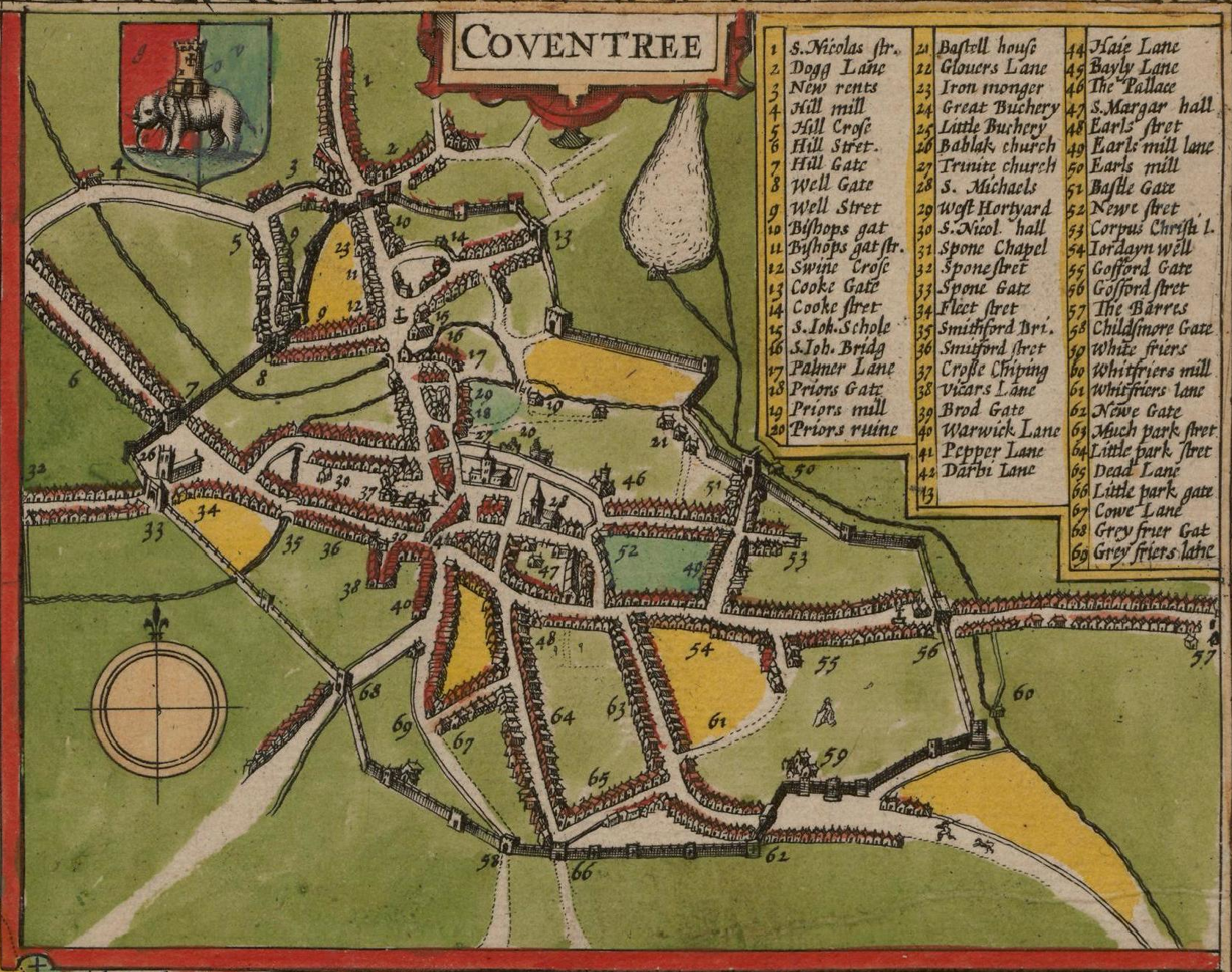Stewart Fergusson provided a lively and insightful paper on a local aspect of what Bernard Capp termed England’s ‘culture wars’ of the mid-seventeenth century. The aftermath of the English Civil War and execution of Kings Charles I in 1649 saw the birth of a republic and a concerted attempt by Puritan reformers to enact a ‘godly’ reformation in order to transform the moral standards and behaviours of English society. This reached its climax with the establishment of the rule of Major-Generals in 1655, when Oliver Cromwell appointed twelve military officers to oversee local government and promote a ‘reformation of manners’. It was during this period that Coventry came under the mayorship of godly reformer, Robert Beake, whose zealous activities provided the topic of Fergusson’s paper.

Fergusson opened the paper with a background on Coventry, stressing its importance as a centre for Puritanism, and its strong independent identity as an urban corporation separate from Warwickshire’s county community. Beake’s ascendency within the corporation during the Civil War was rapid, culminating in his appointment as Mayor of Coventry. Fergusson successfully elucidated Beake’s political and religious views; the paradox of political conservatism entwined with religious radicalism which resonated with Cromwell’s desire to ‘heal and settle’ the nation after years of turmoil. While hostile to radical sectaries such as Quakers and Anabaptists and to the role of the army in government, Beake was keen to promote a godly society and willing to co-operate with Major-General Edward Whalley to curb moral excesses. At the same time, Beake was actively interested in national affairs. He sat as MP for Coventry in successive Protectorate Parliaments, interjecting in key debates in support of offering the crown to Oliver Cromwell in 1657.
For many Puritans in the seventeenth century, diary writing was a common devotional practice designed to reflect upon or reaffirm their commitment to maintaining a godly lifestyle. While not focussing on his spiritual health, Beake provided a practical day-to-day account during his mayoralty of reforming activities in his quest to model a godly society. Fergusson used Beake’s diary to provide a convincingly nuanced account of the successes and failures of attempts at a godly reformation in Coventry. He drew upon numerous examples relating to Beake’s attempts to clampdown on ungodly behaviour such as unlicensed brewing, sabbath breaking, profanity and fornication. While Beake was effective in some aspects such as curbing sabbath-breaking -and therefore provides a useful example of how the reformation could be successful in some circumstances- issues such as unlicensed alehouses as well as the frequency of repeat offenders, demonstrated the difficulty of attempting to transform cultural practice over such a short space of time. It may have been fruitful for Fergusson at this point to consider how Beake’s moralising activities in Coventry contrasted with other towns and cities in England. How exceptional were Beake’s experiences as an energetic godly magistrate in Coventry?
While Beake’s support for a traditional form of government ensured he was willing to support the restoration of Charles II in 1660, his hopes for religious toleration were dashed with the implementation of a narrow Anglican settlement. His political career after the Restoration, Fergusson demonstrated, was far more limited. His association with the Cromwellian regime coupled with his religious non-conformity, meant that he was viewed with suspicion by successive Stuart regimes.
To conclude, Fergusson’s paper revealed an important local aspect of the mid-seventeenth century. The strength of his paper lay in its ability to situate Beake’s godly activities within the wider political context of the Civil War and English Republics. It also nicely complimented recent scholarship on the period that has reconsidered the relative successes and failures of Puritan attempts at a godly reformation. At the same time, Fergusson ensured that the paper intersected with various other important political and religious themes including Puritan diary writing, national-local relations, the role of the army in government and the emergence of religious sectaries. Fergusson revealed Beake as someone who was politically astute, successfully navigating the rise and fall of the successive Parliamentary regimes of the 1640s and 1650s, but whose religious convictions fell afoul of the Restoration government. Overall, the paper proved to be of great interest to both a general audience and more seasoned veterans of the period.
By Waseem Ahmed (doctoral candidate at UCL and UoB graduate)
